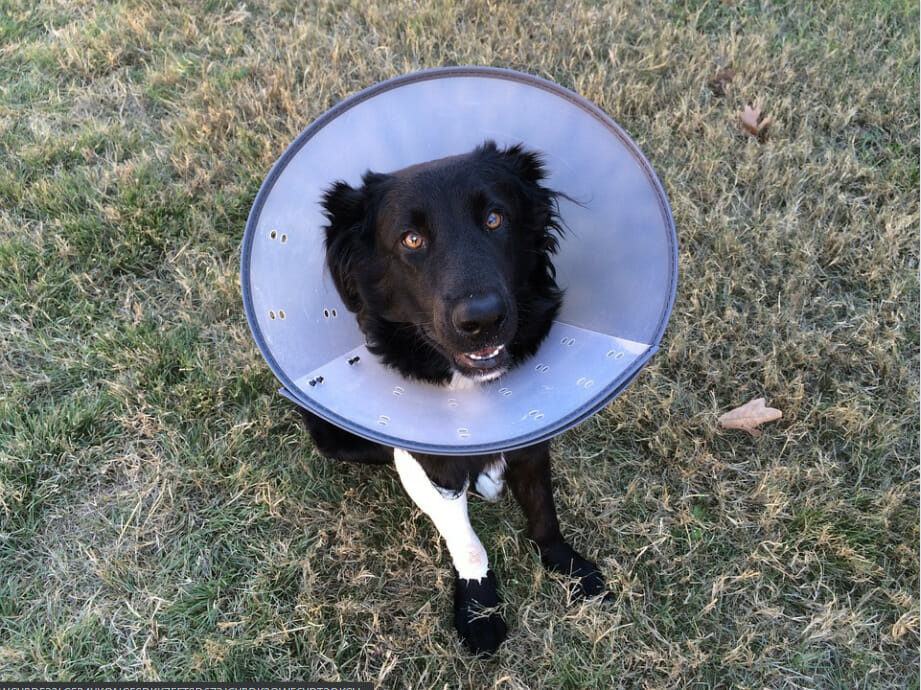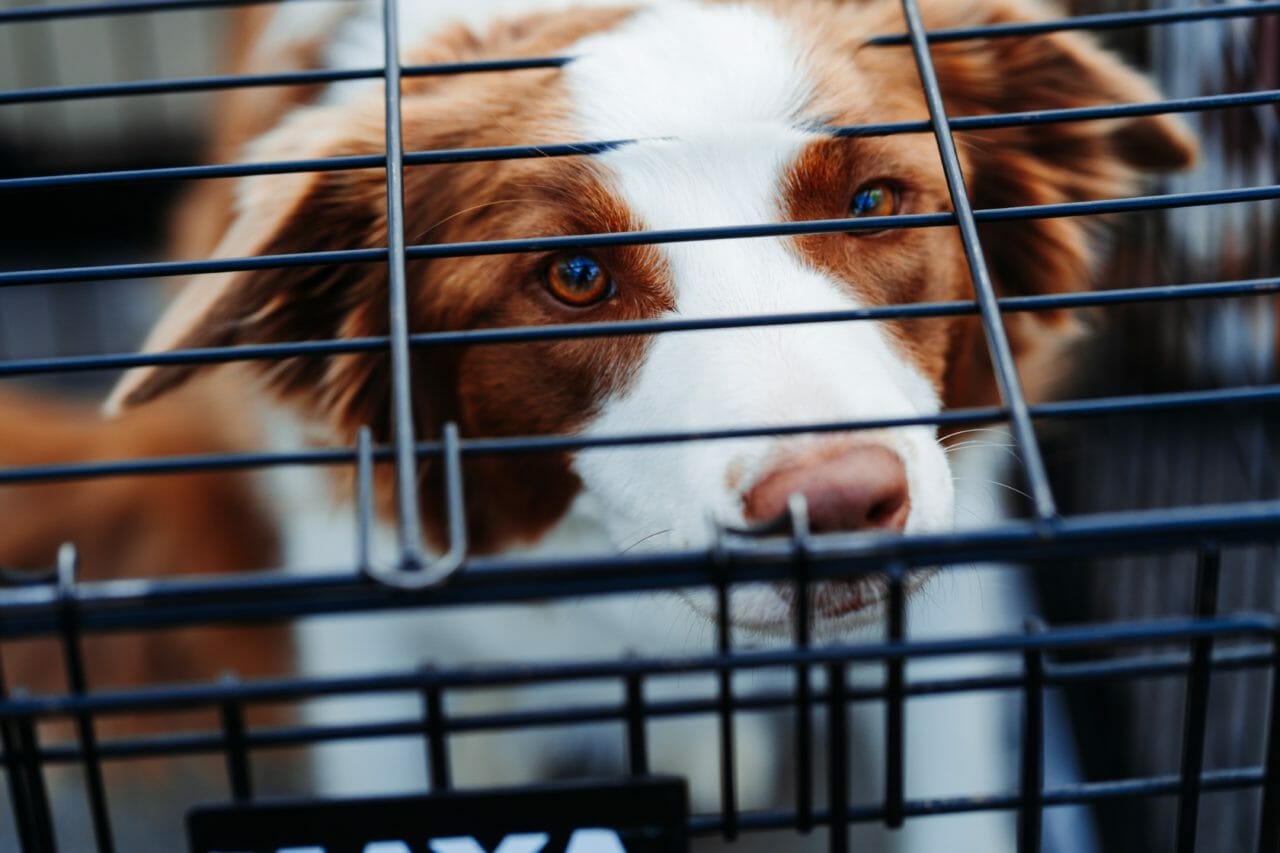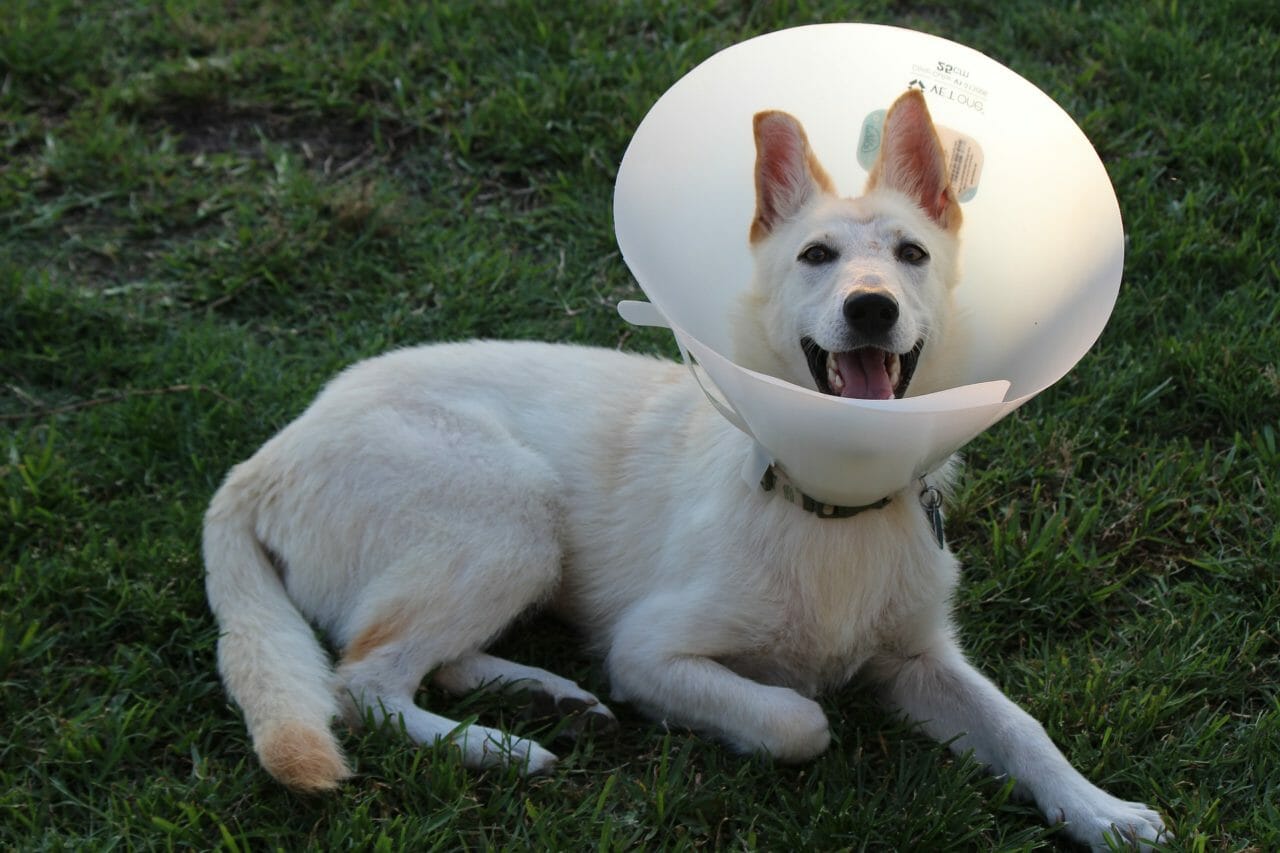Dogs (and cats) often fall victim to several common intestinal parasites known as worms. There are many different types of intestinal worms, but dogs are most commonly affected by tapeworms, roundworms, hookworms, and whipworms.
These parasites live in the digestive tract (most commonly in the intestines) where they feed on nutrients, robbing the dog of the nutrition it takes in. Worm infestations can cause a variety of undesirable symptoms including vomiting, diarrhea, weight loss, and a generally poor appearance.
How do Dogs Get Worms?
There are several ways that a dog can wind up with an infestation of any of these types of intestinal parasites. An animal infested with any of these types of worms may pass the worms’ eggs in its feces. This is a strong argument for picking up after your pet as often as possible and not allowing your dog to eat feces (something dogs will do) whenever you can.
Hookworms
Hookworms are predominately found in dog feces. If your dog eats feces containing hookworms, they can develop this condition.
Look for the following signs: loose stool or blood in the stool, the dog seems bloated, gas, has an unusual appetite, and his coat seems to be on the dull side.
Roundworms
Roundworms come from dogs ingesting the egg of the roundworm. Some roundworms will lie dormant in the body of a pregnant dog and activate just before it gives birth. The activated worms make their way into the intestines of the unborn puppies where they will thrive after the pups are born.
Signs that your dog has roundworm may be exhibited as follows: vomiting, diarrhea, bloating, gas, and an unusual appetite.
Heartworms
Heartworms are usually developed from mosquitoes. This condition can result during warm months when dogs are more exposed to these pests. Signs your dog may have heartworm includes lethargy, coughing, appetite loss, difficult breathing, and may become more tired than usual after exercise. This condition requires immediate treatment from a vet.
Tapeworms
Tapeworm eggs can be spread by fleas. Fleas eat the eggs (quite a delicacy to a flea) and then pass them to a dog when biting it. A regular inspection of your dog’s rectum to detect if there are any white rice-like parasites will clearly indicate your dog has tapeworms. Other signs may include itching in the infected area, inability to digest food, loss of weight, and stomach pain.
Whipworms
Whipworm is caused by dogs that eat other feces that have been infested with worms or if they happen to step in feces and lick their paw. A dog with this condition will have a bloody stool, unusual appetite, will become bloated, experience cramps, and have a dull coat.
Other Parasites
There are other serious conditions which can affect a dog’s health, particularly puppies. While these are not attributed to worms, they should nonetheless be noted. Coccidia are parasites which are caused by digesting feces. Signs of this condition includes loose stool, vomiting, loss of weight, and bloating. Coccidia infect the intestines of the pup.
Another parasite which can affect pups is called Giardia. Found mostly in areas where water is abundant, the ingestion of these parasites can cause loose stool, loss of weight, and bloating. These parasites feed on the small intestine.
Detecting Worms in Dogs
Detection and early prevention can alleviate the symptoms affecting your dog or puppy.
A regular check-up will give a vet the opportunity to check for worms and other conditions by taking stool samples. If you find that your dog’s behavior or habits have changed in any way, make an appointment with your vet to ascertain the problem so that treatment can commence immediately.
Note: Some parasites can affect small children. To prevent this from occurring, ensure that your child does not come into contact with the dog’s feces. After your child plays with the dog, make sure he or she washes his hands thoroughly each time.
Worm infestations can be difficult to detect. While some worms may be passed in the feces, betraying their presence, it is uncommon.
- If a dog is displaying symptoms that may indicate the presence of worms, a vet should be consulted.
- A stool sample will be examined for the presence of worm eggs (these are microscopic) and a medication called a “wormer” will be prescribed. Stool samples are often collected as part of a routine dog physical examination in order to check for the presence of worms.
- In the case of tapeworms, discarded tapeworm segments may be visible in the dog’s feces or attached to the fur around the anus or under the tail. To the naked eye these may look like small bits of white rice.
Unfortunately, dogs can develop worms quite early in life. Here are some ways to prevent them in your dog.
Treating Dogs for Worms
When a dog is found to have an infestation of worms, it should be prescribed a wormer immediately by a vet. Depending on the severity of the infestation, the type of worms, and the likelihood of re-infestation, the treatment may need to be repeated one or several times. There are over-the-counter wormers available, but most vets do not recommend them because they are necessarily weaker and may not kill all types of worms and their eggs.
Intestinal worms can cause numerous health problems for dogs, up to and including death in extreme cases. Taking measures to prevent infestation, detect it as quickly as possible, and treat it accordingly can help keep your dog safe from these harmful parasites.
Worms can cause serious conditions in dogs. While parasites such as fleas, ticks, and other internal parasites can wreak a heavy toll on your pet, ensuring his safety requires constant observation and treatment.
Tips for Preventing Worms in Dogs
- One of the major causes of tapeworms is attributed to fleas and lice. Brush your dog regularly with a flea comb and keep a watchful eye for any odd behavior exhibited by your dog. Dogs that ingest fleas, for example, can develop tapeworms. Thus, it is necessary to determine whether your home or yard is infested with these parasites, which will require using a variety of methods to rid them from your premises.
- Feces are another contributing factor in developing worms. Ensure that all feces are picked up either in the back yard or, in the case of puppies, immediately after they eliminate in your home.
- Do not give your dog raw meat. When preparing his meals, ensure the meat is thoroughly cooked.
- Most worms are transmitted through the digestion of feces. Dogs like to smell other dogs’ feces. When talking your dog for a walk, pull him aside if you find that he is sniffing or attempting to digest the feces. So too, removing your dog’s feces, either in the home or backyard, is essential in preventing worms.
- If you acquire a new puppy, make an appointment with the vet as soon as possible so that vaccinations to prevent worms can be administered.
- When taking your dog for walks, try to avoid wooded areas where fleas and ticks reside. When bathing your dog, examine the undercoat thoroughly to ascertain if there are any bumps, lumps or scars that are indicative of parasite infestation.
- Certain breeds of dogs are likely to eat dead animals. This can cause the worms to infiltrate your dog’s intestines.
- Tapeworms can be easily spotted in the dog’s stool. They are white in color and look like rice and can sometimes be detected in the area of your dog’s rectum. Take your dog to the vet immediately for treatment.
- If you detect that something is wrong with your dog, vets advise you to bring a sample of their stool so they can determine if the dog has been exposed to worms.
- Your vet may also recommend heartworm prevention in the form of monthly treatments.



